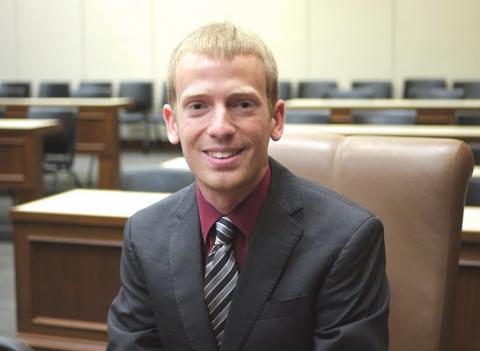
UCLA School of Law alumnus Travis Bell ’17 has received the first Ambassador Award ever presented by Gideon’s Promise. The award goes to a person who supports the Gideon’s Promise mission to raise the standard of indigent defense by building a movement of public defenders.
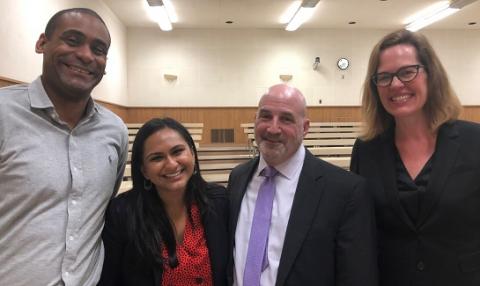
Three UCLA School of Law students have won prestigious fellowships through which they will serve immigrants and indigent defendants after they graduate in May. In addition, one recent UCLA Law graduate earned a fellowship for his work in helping people who are incarcerated in California.
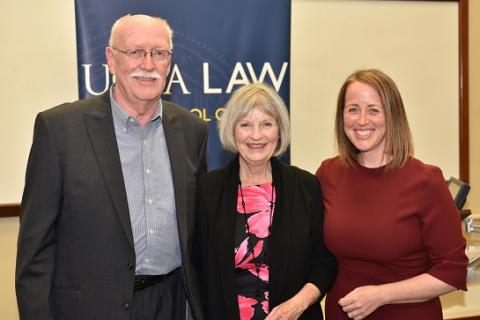
Professor Beth Colgan became the 42nd winner of UCLA School of Law’s highest faculty honor, the Rutter Award for Excellence in Teaching, at a ceremony on April 22.
The award, founded in 1979 by famed legal publisher William Rutter, is presented annually to leading legal educators at five top California law schools.
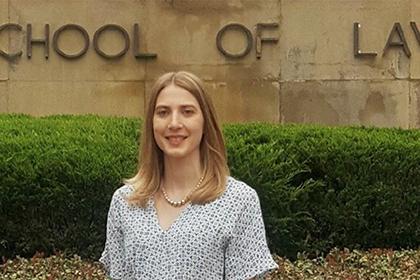
Phoebe Kasdin '18 came to UCLA School of Law with an unwavering commitment to help those who are struggling. She leaves as the first UCLA Law alum to receive a two-year fellowship that will allow her to provide holistic representation to indigent mothers who are facing criminal charges and a panoply of related troubles, including family destabilization and loss of child custody.
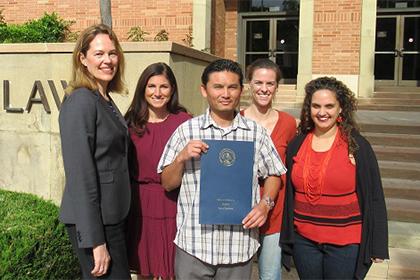
Thanks to the work of UCLA School of Law's Criminal Defense Clinic, five Southern California community members recently received pardons for old criminal convictions from then-Gov. Jerry Brown. All five of the clients represented by UCLA Law students received pardons during a flurry of criminal justice-related activity in Gov. Brown's waning months in office.
Sidewalk vendors in Los Angeles live on subsistence wages earned from an honest day's work. Over the past year, however, these community entrepreneurs have experienced increased police harassment, arrests, onerous criminal justice debt, and even incarceration. These and other findings are documented in a new report issued by law students in UCLA School of Law's Criminal Defense Clinic.
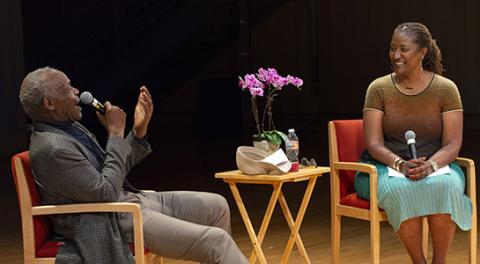
Lawyers, artists, activists and people impacted by the criminal justice system came together in April for the inaugural Connecting Art and Law for Liberation Festival, blending art and action in a weekend-long series of events at UCLA and two area juvenile detention facilities.
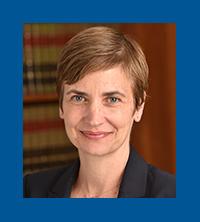
UCLA School of Law professor Joanna Schwartz was cited by U.S. Supreme Court justice Sonia Sotomayor in her dissenting opinion in Nieves v. Bartlett. The Court decided the case on May 28, with a majority of the justices holding that probable cause generally overrides a claim that a retaliatory police arrest violated the First Amendment.
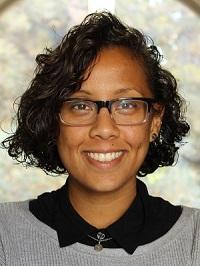
UCLA School of Law has appointed Fanna Gamal and Aaron Littman as Binder Clinical Teaching Fellows, starting in the 2019-20 academic year. Named for UCLA Law professor emeritus and clinical legal education pioneer David Binder, the two-year fellowships offer opportunities for clinical teaching and research designed to prepare fellows to seek permanent law school faculty positions.
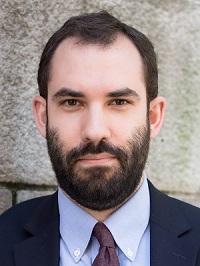
Littman joins UCLA Law from the Southern Center for Human Rights in Atlanta. A prisoners' rights litigator and advocate, Littman clerked for Judge Stephen Reinhardt of the U.S. Court of Appeals for the Ninth Circuit and Judge Myron Thompson of the U.S. District Court for the Middle District of Alabama. At UCLA Law, he will work with the Prison Law and Policy Program led by professor Sharon Dolovich, and collaborate with other faculty working in criminal law and civil rights. Littman earned a J.D. from Yale Law School, a master of philosophy from the University of Cambridge and a bachelor’s degree from Yale.
Several previous Binder Fellows have gone on to tenured faculty positions, including UCLA Law professors E. Tendayi Achiume and Joanna Schwartz, Irene Joe of UC Davis School of Law and Jyoti Nanda of Golden Gate University School of Law.
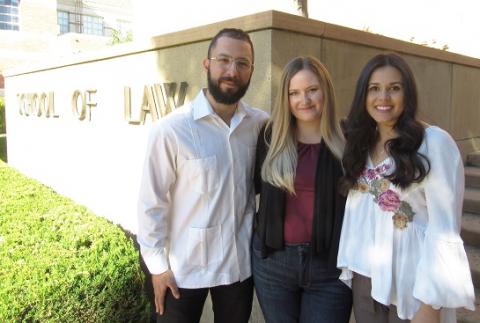
Three UCLA School of Law students have received Skadden Fellowships to pursue public interest law after they graduate. The two-year fellowships, presented annually since 1988, are among the most prestigious and competitive awards for public interest law students.